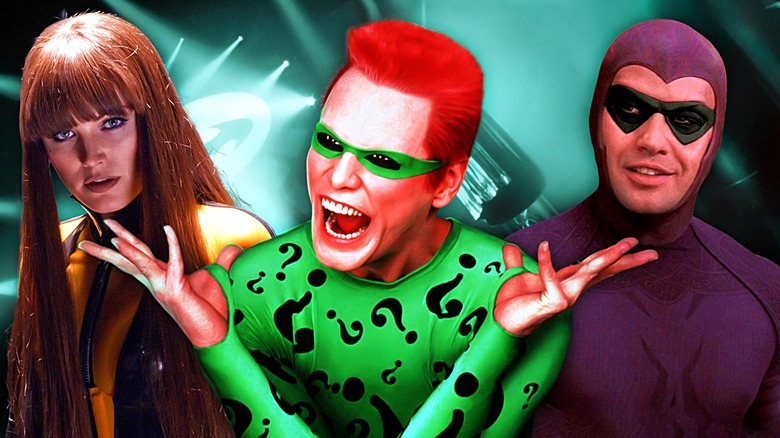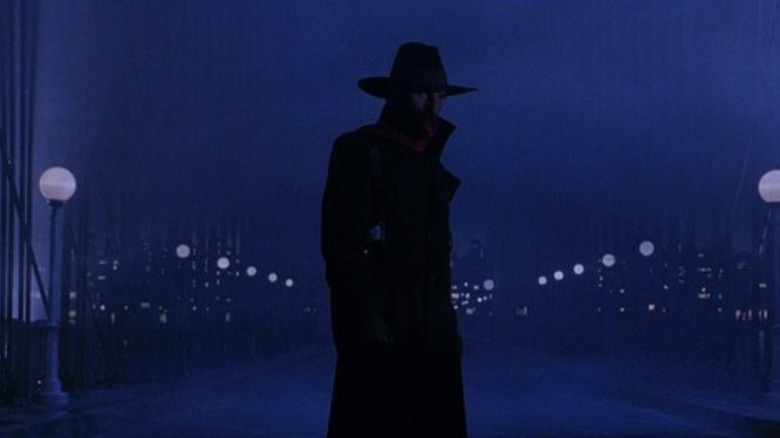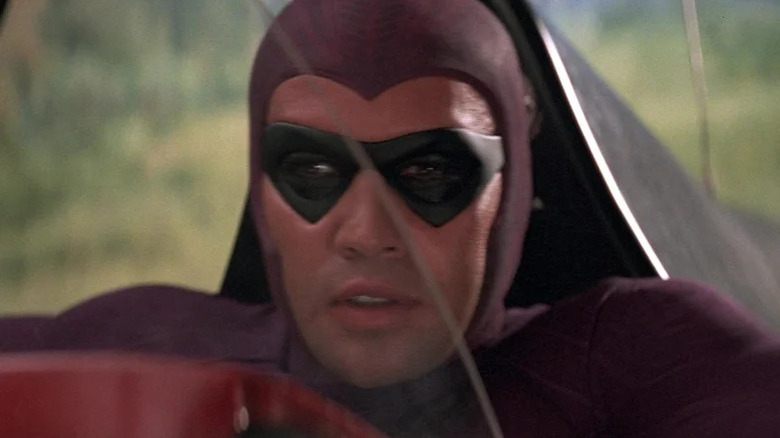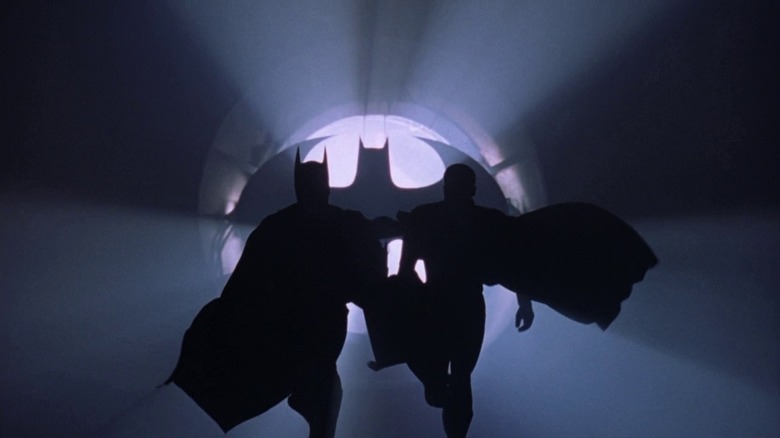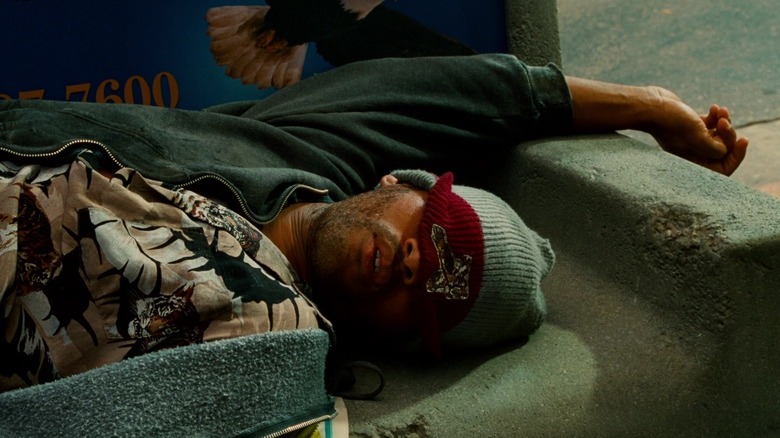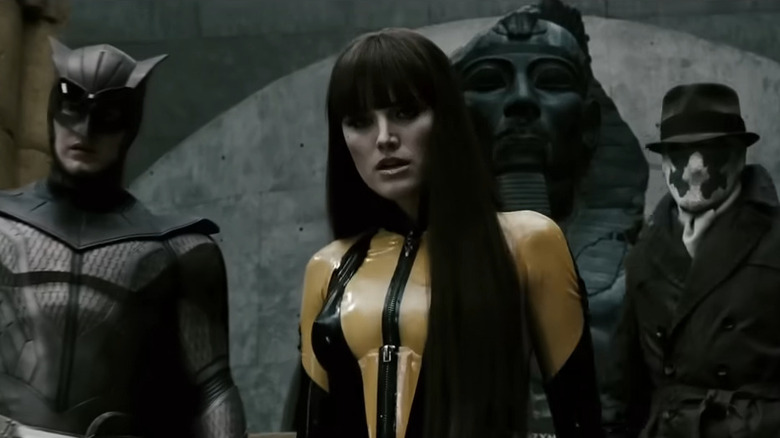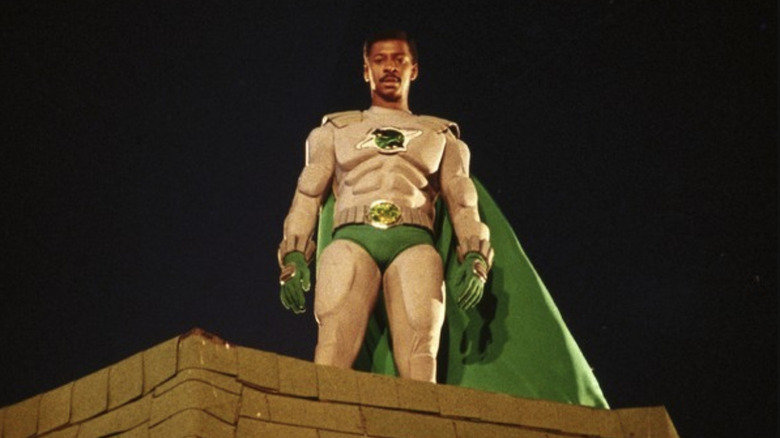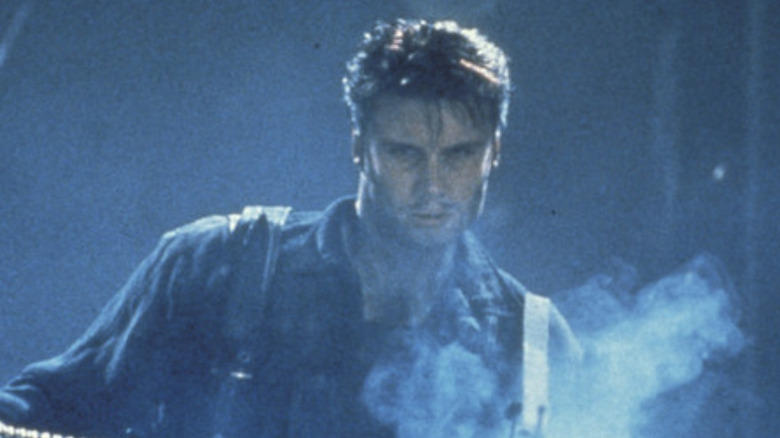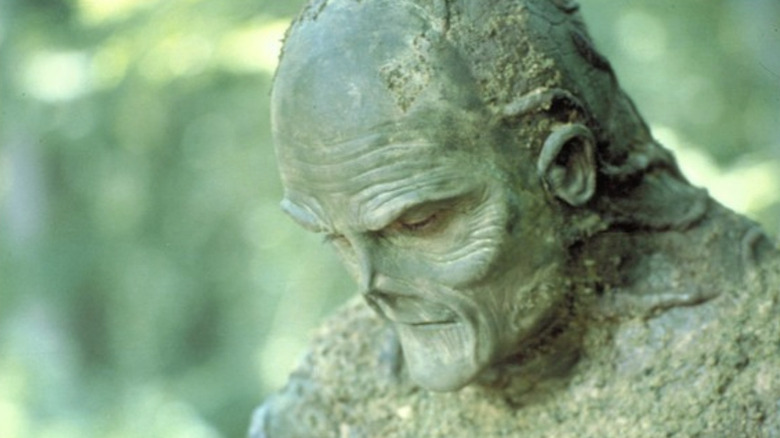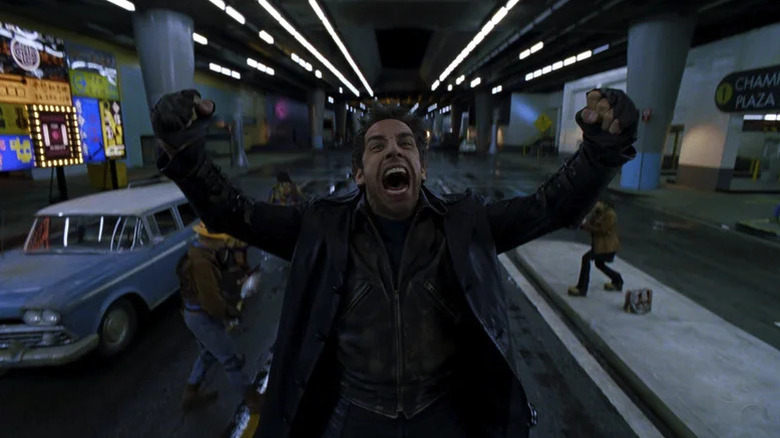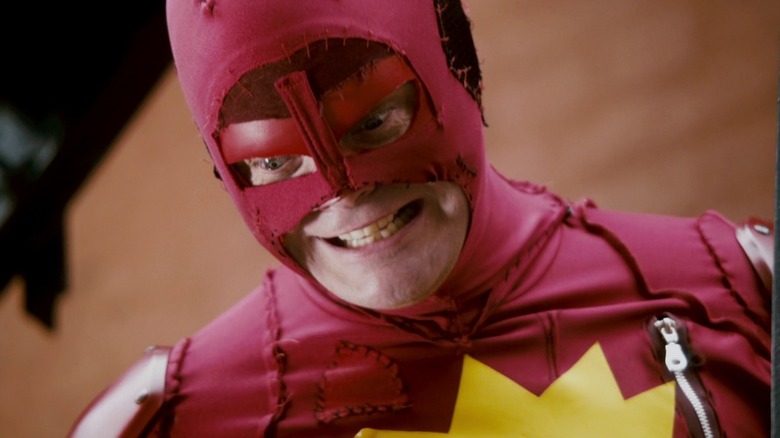10 Underrated Superhero Movies That Deserve More Love
It sounds strange to say any superhero movie "deserves more love." How much more love can this genre get?! The genre's worldwide box office total is an absolutely amazing $67 billion, with almost half coming from the Marvel Cinematic Universe alone. Despite a few entries by dinosaurs, pirates, Jedi, and other genres dominated by one franchise, the biggest opening weekend record holders of all time are superheroes, while they are some of the highest-grossing movies ever (by filmmakers not named James Cameron).
Sure, "superhero fatigue" is a real thing, with super-powered men in tights struggling especially at the international box office. But even that's a matter of scale; superhero movies routinely banked a billion for nearly a decade, so even half or one-third of that is enough to top the charts. Point being, moviegoers still really love superhero movies, just maybe not as much as they used to. What can I say? We're fickle.
Still, with so much spandex-clad content out there, it's no wonder that a lot of quality superhero movies have flown under the radar — or even crashed and burned. Chances are you have watched the greatest superhero movies of all time (probably more than once), but how many underrated superhero movies have you seen? These flicks disguise themselves better than Clark Kent, either barley making a dent at the box office, or making money but having no cultural impact. We're going to fix that by celebrating the ten underrated superhero movies that deserve more love.
The Shadow
Before Alec Baldwin settled into his role as "Hollywood's favorite character actor who looks like a leading man," the elder Baldwin brother tried his hand at being a straight up headlining star. Baldwin's above-the-title aspirations started solidly enough in a big screen adaptation of Tom Clancy's "The Hunt For Red October," with Baldwin playing the first (of many) Jack Ryans. But Baldwin was buoyed by his superstar co-star Sean Connery and Clancy's source material. Alas, he passed "Patriot Games" onto Harrison Ford, and promptly struggled carrying movies on his own, including an adaptation of "The Shadow."
In the 1994 would-be summer blockbuster, Baldwin played Lamont "don't call me Bruce Wayne" Cranston, a debonair millionaire playboy who patrols the streets of 1930s New York at night as the shadowy crimefighter The Shadow. In fact, The Shadow preceded Batman as a character, but the movie was left in the Dark Knight's shadow, grossing a pretty pathetic $31 million, and garnering middling reviews. I'm not sure what movie those folks were watching, because "The Shadow" slaps!
Watching the breezy 108-minute period superhero pic feels like holding pulpy comic strip paper on your fingertips. Baldwin is compelling as the (other) caped crusader, Penelope Ann Miller is pitch perfect as Cranston's confidant Margo Lane, while John Lone and Tim Curry compete to see who can chew the most scenery. Also, there's a flying knife. Who knows why more people haven't seen and fallen in love with this film? Only The Shadow knows.
The Phantom
Everyone inherits something from their parents, even if it's only their genes (just ask Sydney Sweeney). Kit Walker inherited the mantle of The Phantom, a purple-clad, jungle-dwelling hero who battles evildoers with the power of three ancient skulls. Gee, thanks dad. While Walker might have preferred an antique pocket watch, he has bravely borne the burden of superheroics since the character debuted in comic strips in 1936. Fast-forward 60 years later when Hollywood attempted to give The Phantom the big-budget blockbuster treatment, but got ghosted by the audience. "The Phantom" flat-out flopped with $17 million on a $45 million budget, also failing to find favor with film critics.
Admittedly, "The Phantom" failed in its grand ambitions to blend "Batman" with "Raiders of the Lost Ark," but that's a borderline impossible bar to cross for any film. Still, I can't help but admire the 1996 flick for daring greatly even while it came up short. Just one year before Billy Zane's performance as the dastardly Caledon Hockley in "Titanic" earned him his permanent place in cinema history, Zane put on the purple suit for his convincing portrayal of the pulp superhero. Treat Williams' performance as the diabolical Xander Drax is so delightfully hammy it should be served with biscuits and fried eggs. Meanwhile, supporting starlets Kristy Swanson and Catherine Zeta-Jones are clearly having a blast playing femme fatales from the past. "The Phantom" warrants a remake, but for now you should show the OG some love.
Batman Forever
Batman has broken the opening-weekend box office record four times, more than any other franchise, beating runners-up "The Avengers" (x3) and "Jurassic Park" (x3). Three of the four Batman record-breakers have devoted supporters: Tim Burton's "Batman (1989)" and "Batman Returns," and Christopher Nolan's "The Dark Knight." Yet one unfortunately has an unearned reputation for repugnancy due to its association with the flop that followed it: "Batman Forever."
If you were alive in 1995, you remember that summer was Bat-Mania part deux, or perhaps Riddler-Mania, as the emerald-green question mark was everywhere. Consequently, "Batman Forever" broke the franchises' own opening-weekend record with a $52 million debut, on its way to $336 million worldwide ($70 million more than "Batman Returns"). So it made a Bat Cave's worth of bling, but is it any good? Actually, yes.
Sure, the tone shift from Penguin spitting black blood in "Batman Returns" to Riddler jumping jauntily in a skin-tight green unitard in "Batman Forever" is jarring. But fans of Burton's gothic, neo-noir grimness can still enjoy Joel Schumacher's neon-coated nightmare without feeling like they're betraying Burton. While we miss Michael Keaton, Val Kilmer is very much "a Batman for the '90s" as a million profile puff pieces called him. Tommy Lee Jones is having a blast playing against type chomping scenery as Two-Face, while Jim Carrey's on brand playing an over-the-top lunatic, The Riddler. "Batman Forever" unfairly gets lumped in with the franchise-killing "Batman & Robin," but its kitschy, kid-friendly vision deserves love.
Hancock
Before Will Smith became infamous for slapping Chris Rock during the Oscars,he was just plain famous for being one of the few butts-in-seats draws. Smith's run in the mid-2000s was especially impressive with his string of $200-million-plus global grossers. Sure, some were sold based on "Will Smith in a big-budget spectacle," (e.g. "I, Robot"), but others were promoted with simply "Hey, it's a new Will Smith movie" (e.g. "Hitch"). "Hancock" falls somewhere in the middle.
Yes, it's a special effects-heavy superhero movie, but the subtitle might as well have been "What if Will Smith played a drunken superhero who hates people?" Powered by that premise, "Hancock" opened to $62 million, earned $624 million worldwide (nearly a billion in today's dollars), and landed in the top four for the year, ahead of "Iron Man" and "WALL-E." And all for a movie whose poster was literally just Will Smith's face. Smith's superpower was star power, kids.
"Hancock" had drawing power; it didn't have staying power. The superhero satire is best remembered for its bizarre third act. Basically something about Smith's amnesiac John Hancock being an angel who was once married to Charlize Theron's character (also super powered), who is now married to his press agent (Jason Bateman). Okay, yeah, that's dumb, but don't let that ruin the fun of two-thirds of the movie, with Bateman trying to coach Smith's overpowered grump into a likable superhero. Though if you ask Chris Rock, "Hancock" should have been titled "Hand Face," amirite?
Watchmen
The Snyder Bros (or at least the Snyder Bots) have made it their mission to restore DC's Snyderverse of superhero films that ended unceremoniously with "Justice League." Well, the Snyder Bros (or Bots) would be better off abandoning #RestoreTheSnyderverse for #RestoreWatchmensReputation (though we'll need to workshop that hashtag).
First, some history: Zack Snyder was riding high after the one-two punch of his "Dawn of the Dead" remake and adaptation of Frank Miller's "300," the latter especially earning him the (much-mocked) moniker of "visionary." It also earned him the right to direct the story that had sat in development hell for decades, making mincemeat of many other filmmakers: an adaptation of Alan Moore and Dave Gibbons' comic book masterpiece, "Watchmen."
Well, Snyder did it, though the movie was inevitably lacking compared to its legendary source material. No, it wasn't as good as the graphic novel; how could it be? And while this may sound like a strange criticism, "Watchmen" was almost too faithful to the comic, as it didn't bring anything fresh to the material, making it seem all the more like a cynical cash grab (that didn't make any cash). Still, "Watchmen" is undeniably an impressive achievement, as Snyder did what many insisted couldn't be done. Meanwhile, Jackie Earle Haley and Jeffrey Dean Morgan were perfectly cast as Rorschach and The Comedian, respectively, while the rest of the cast brought their A-game. If you have seven hours, read "Watchmen." If you only have three, the movie is just fine.
The Meteor Man
Don't worry if you have never heard of "The Meteor Man." He wasn't a character torn from the pages of comics, but born from the brain of Robert Townsend for his criminally underseen superhero comedy. This 1993 flick finds Townsend pulling off a truly super heroic feat; starring, directing, writing, and co-producing the film without somehow going insane. Townsend plays Jefferson Reed, a mild-mannered teacher in a rough inner-city school that is burdened by a tough gang. As fortune would have it, Reed is struck by a falling meteor, which grants him a host of superpowers. Armed with his newfound abilities, Reed dons the moniker of "Meteor Man" and commits to combating the criminality plaguing his community. The only problem is, he can fly but is deathly afraid of heights. So there's that.
Townsend is the creative force in front of and behind the camera, so he probably wished he gained the power to slow down time. But at a fast-paced and always funny 99 minutes (or about half the length of an average comic book movie these days), you'll wish "The Meteor Man" was a little longer. While this is Townsend's movie through and through, he assembled a stacked cast, including: Sinbad, Eddie Griffin, Luther Vandross, a before-he-was-famous Don Cheadle, a before-he-was-disgraced Bill Cosby, and the always welcome baritone of James Earl Jones. That cast alone means "The Meteor Man" is worth a watch. The fact it's downright delightful is icing on the cake.
The Punisher
Seems like almost as many actors have played Frank "The Punisher" Castle as have played heavy hitters like Batman, Superman, and Spider-Man (meanwhile Hugh Jackman has played Wolverine for a quarter of century.) With all of those dudes donning the white spray-painted skull, you'd be forgiven for forgetting that Frank Castle's first onscreen appearance starred none other than Sweden's favorite son, Dolph Lundgren. Yes, two years after he guarded Eternia as He-Man in "Masters of The Universe," Lundgren was pumping bad guys full of bullet holes with black-dyed hair as Frank Castle. And people say the guy doesn't have range.
You know the story: Frank Castle becomes a one-man army on a mission to mutilate the mafia after his family is brutally murdered. This film picks up with Castle five years into his crimefighting career, with a body count of 125 mobsters, not counting henchmen (basically one "John Wick" movie). With the mob families weakened by Castle's "punishment," a power vacuum develops. Enter the Yakuza, which kidnaps the mobster's children, forcing Frank into a moral conundrum: does he help villains to save innocent children?
A morally complex Russian novel "The Punisher" ain't, but it is a fun, fast-paced, action-packed flick that's downright slim at 89 minutes. Released overseas a few months after "Batman" in 1989, "The Punisher" never got a theatrical release stateside, and settled for straight-to-video in 1991. If you missed it at your local video store, stop punishing yourself. Track down this underseen superhero movie.
Swamp Thing
Between "The Last House on the Left" (1972) and "The Hills Have Eyes" (1977) making him famous, and "A Nightmare On Elm Street" (1984) making him legendary, horror maestro Wes Craven tried his hand at an action pic, albeit one still "rooted" in horror: "Swamp Thing." Created by Bernie Wrightson and Len Wein in 1971, "Swamp Thing" had developed a cult following in the decade since his debut. So much so, the character attracted the attention of Craven, who wrote and directed the 1982 film even before he brought Freddy Krueger to the big screen.
Adrienne Barbeau plays Alice Cable, a government agent sent to the swamps to protect brilliant botanist Dr. Alec Holland (Ray Wise), who has achieved a breakthrough in mixing plant and animal DNA. But as tends to happen in these movies, Holland's work is sabotaged by the mad scientist, Dr. Anton Arcane (Louis Jourdan). But before Arcane can kidnap and kill Holland, the scientist becomes mutated by his own mixture into a monster (Dick Durock) with super strength, regeneration, and the power to control plants. Now it's up to our herbaceous hero to save Cable and stop Anton.
"Swamp Thing" is weird, wacky, and spectacularly campy, with an unabashed desire to bring to the screen the stories told on the pulpy pages of horror comics. While Wes Craven was no John McTiernan ("Predator," "Die Hard"), he proves himself more than capable of directing the stunt work, explosions, and gunfire of an '80s action pic.
Mystery Men
Between "Batman & Robin" (1997) killing the superhero genre and "X-Men" (2000) reviving it, there was "Mystery Men," a 1999 comedy-action that was ahead of its time. Had it come out 15 years later, it would have been a hit, or at least had three solid seasons on streaming before being quietly canceled. But that was not to be, as in our corner of the multiverse, "Mystery Men" managed a meager $33 million worldwide, bombing on a $68 million budget. Darn shame, since "Mystery Men" is a delightfully quirky comedy that didn't connect with moviegoers 25-plus years ago, but is sure to entertain audiences smothered by superheroes today.
Champion City's champion Captain Amazing (Greg Kinnear) has been kidnapped by the dastardly Casanova Frankenstein (Geoffrey Rush), so an absurd troupe of amateur avengers assembles to save him. This quirky crews' "powers" are in their names: The Bowler (Janeane Garofalo), The Shoveller (William H. Macy), Invisible Boy (Kel Mitchell), and Mr. Furious (Ben Stiller), whose superpower is irrational rage (so basically The Hulk or your stepdad).
Throw in Hank Azaria as The Blue Raja, Wes Studi as The Sphinx, and Paul Reubens as The Spleen for a stacked cast of solid supporting performers. Alas, Stiller was in his post-"There's Something About Mary," pre- "Meet The Parents" phase, so his star power wasn't strong enough to lead this ensemble to box office glory. But hey, now that you know it's great, don't let "Mystery Men" remain a mystery.
Super
Before James Gunn became the most powerful creative force in the superhero genre not named Kevin Feige (and some would argue he's even more influential now), he was just another filmmaker inserting his signature style into the established genre. And boy did he. While 2011 seems like a long time ago, we were already waist deep into the superhero genre's dominance as the prevailing pop culture force. What happens when a genre gets too big for its tights? It gets spoofed. Gunn did just that with "Super."
Rainn Wilson plays Frank Darbo, a go-nowhere fry cook whose wife Sarah (Liv Tyler), who's recovering from substance abuse, leaves him for a greasy strip club owner and drug dealer, Jaques (Kevin Bacon), who gets her hooked again. Believing she's been brainwashed and kidnapped, Darbo does what any well adjusted adult would do and emulates a TV superhero to become "The Crimson Bolt."
Given this is a James Gunn movie, things get silly and kinda weird (the guy even managed to do that with the Big, Blue Boy Scout), so a fan's appetite for this type of humor may vary. With half-a-million worldwide (it was only ever released in 38 theaters), Gunn's film didn't exactly do Marvel numbers. But its cult status got Feige's attention, at which point Gunn did get Marvel numbers, and alongside Joss Whedon and Taika Waititi helped create the one-liner-heavy "Marvel Dialogue." As a movie, "Super" is underseen. As a milestone in Gunn's oeuvre, and thus the superhero genre, it's essential.
